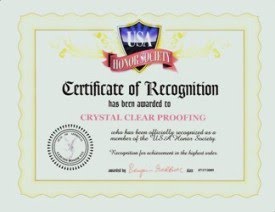Two of the most common words used incorrectly, both in written material and in speech, are "me" and "I."
Technically, "I" is a nominative pronoun used as a subject of a sentence, while "me" is an objective pronoun, used as an object. The problem usually arises when connecting objects in a sentence. "I" is not an objective case word, but it is used simply because to most people it just sounds better.
Using "I" works for the nominative case when you and the other person are subjects of a sentence; however, if you and the other person are objects of the sentence, using "I" is not correct.
For example, "Mary and I are going to the conference" works. "You" and "Mary" are subjects of the sentence. Remove "Mary" and you have, "I (am) going to the conference."
Being objects in a sentence changes correct structure. Simply leave out the second object(s), or person(s). For example:
You may be tempted to write or say, "Would you like to join Mary and I at the conference?" By removing the second object (Mary) you have, "Would you like to join I at the conference?" Now try, "Would you like to join me at the conference?" It's easy to see that the proper sentence should be, "Would you like to join Mary and me at the conference?"
It really is just as simple as removing that second object. Let's try it again:
"Please explain proper word choice to Christine and I."
"Please explain proper word choice to Christine and me."
Remove the second object (Christine) and you have: "Please explain proper word choice to I," or, "Please explain proper word choice to me." See how easy it is to recognize the proper sentence?
"Please explain proper word choice to Christine and me."
Of course there are some instances where you can avoid your own internal dilemma by simply using the first-person plural and stating, "Would you care to join us at the conference?' or, "Please explain proper word choice to us."
Friday, April 20, 2012
Tuesday, January 31, 2012
Pronoun Tips
Pronouns take the place of nouns.
Subject Pronouns: I, you, he, she, it, we, they
Object Pronouns: me, you, him, her, it, us, them
Rule: Use a Subject Pronoun (also called Nominative Case), not only as the subject of a sentence, but after 'to be' verbs when the pronoun renames the subject.
'To be' verbs: is, are, was, were, will be, may be, may have been
Example: He is my friend.
'He' is the subject of the sentence, so use a subject pronoun.
Example: Enrique and she are friends.
'Enrique' and 'she' are the subjects of the sentence.
Example: It is I who called.
I comes after the 'to be' verb 'is' and renames the subject 'it.' Therefore, use the subject pronoun.
Rule: Use an Object Pronoun (also called Objective Case) when the pronoun is the direct object, the indirect object, or the object of the preposition.
Example: Ella met him at the restaurant.
'Him' is the direct object.
Example: Ella will give him his money back.
'Him' is an indirect object because you can mentally put the word 'to' in front of it. 'Money' is the direct object.
Example: Between you and me, this will never work.
'You' and 'me' are the objects of the preposition 'between.'
Rule: Use reflexive pronouns—myself, himself, herself, itself, themselves, ourselves, yourself, yourselves—to refer back to another noun or pronoun in the sentence.
Correct Example: I did it myself.
Incorrect Example: Please give it to Roger or myself.
In this sentence, 'myself' does not refer back to another noun or pronoun.
Source: Grammarbook
Tuesday, November 15, 2011
15 Frequently Confused Pairs of Verbs
These similar-looking words below have dissimilar meanings. Make sure you’re using the correct one in each pair.
1. Amused/bemused: To be amused is to be entertained; to be bemused is to be confused.
2. Appraise/apprise: To appraise is to evaluate; to apprise is to inform.
3. Ascribe/subscribe: To ascribe is to attach an idea to a source; to subscribe is to hold belief in an idea.
4. Attain/obtain: To attain is to reach; to obtain is to acquire.
5. Barter/haggle: To barter is to trade; to haggle is to negotiate.
6. Born/borne: To be born is to be brought forth; to be borne is to be carried along.
7. Borrow/loan: To borrow is to receive something for temporary use; to loan is to provide something on those terms.
8. Careen/career: To careen is to lean over to one side or to sway; to career is to hurry carelessly—not to be confused with the alternate meaning of a chosen pursuit, a profession or occupation. (Additionally, to 'carom' is to ricochet.)
9. Censor/censure: To censor is to ban; to censure is to reprimand.
10. Criticize/critique: To criticize is to judge harshly or in a negative manner; to critique is to evaluate.
11. Denigrate/deprecate: To denigrate is to defame or belittle; to deprecate is to disapprove or de-emphasize (but can also, like denigrate, mean to disparage).
12. Differ/vary: To differ is to disagree or to be distinct from; to vary is to change (although differ can also refer to 'variation').
13. Espouse/expound: To espouse is to support; to expound means to state, explain, or defend (which is also distinct from the phrase “expand on,” which means to provide additional or digressive details).
14. Rebut/refute: To rebut is to argue in response to another argument; to refute is to deny an argument.
15. Wangle/wrangle: To wangle is to obtain by underhanded means; to wrangle is to wrestle.
Source: Daily Writing Tips
1. Amused/bemused: To be amused is to be entertained; to be bemused is to be confused.
2. Appraise/apprise: To appraise is to evaluate; to apprise is to inform.
3. Ascribe/subscribe: To ascribe is to attach an idea to a source; to subscribe is to hold belief in an idea.
4. Attain/obtain: To attain is to reach; to obtain is to acquire.
5. Barter/haggle: To barter is to trade; to haggle is to negotiate.
6. Born/borne: To be born is to be brought forth; to be borne is to be carried along.
7. Borrow/loan: To borrow is to receive something for temporary use; to loan is to provide something on those terms.
8. Careen/career: To careen is to lean over to one side or to sway; to career is to hurry carelessly—not to be confused with the alternate meaning of a chosen pursuit, a profession or occupation. (Additionally, to 'carom' is to ricochet.)
9. Censor/censure: To censor is to ban; to censure is to reprimand.
10. Criticize/critique: To criticize is to judge harshly or in a negative manner; to critique is to evaluate.
11. Denigrate/deprecate: To denigrate is to defame or belittle; to deprecate is to disapprove or de-emphasize (but can also, like denigrate, mean to disparage).
12. Differ/vary: To differ is to disagree or to be distinct from; to vary is to change (although differ can also refer to 'variation').
13. Espouse/expound: To espouse is to support; to expound means to state, explain, or defend (which is also distinct from the phrase “expand on,” which means to provide additional or digressive details).
14. Rebut/refute: To rebut is to argue in response to another argument; to refute is to deny an argument.
15. Wangle/wrangle: To wangle is to obtain by underhanded means; to wrangle is to wrestle.
Source: Daily Writing Tips
Wednesday, November 2, 2011
The Apostrophe with Numbers, Letters and Abbreviations
Rule: The plurals for capital letters and numbers used as nouns are not formed with apostrophes.
Example: She consulted with three M.D.s.
BUT
Example: She went to three M.D.s’ offices.
The apostrophe is needed here to show plural possessive.
Example: She learned her ABCs.
Example: the 1990s
NOT
the 1990’s
Example: the ’90s or the mid-’70s
NOT
the ’90’s or the mid-’70’s
Example: She learned her times tables for 6s and 7s.
Exception: Use apostrophes with capital letters and numbers when the meaning would be unclear otherwise.
Example: Please dot your I’s.
You don’t mean Is.
Example: Ted could not distinguish between his 6’s and 0’s.
You don’t mean Os.
Source: Grammarbook
Wednesday, August 17, 2011
Hyphenating Between Words
Many of us get confused about when to hyphenate between words. For example, should you write nearly-extinct wolves or nearly extinct wolves?
Nearly answers how close to extinct wolves are/were. Adverbs answer the questions how, where, and when.
Adverbs do not get attached to adjectives with hyphens. Therefore, the adverb nearly, like most "ly" words, does not get hyphenated.
Only compound adjectives—adjectives that act as one idea with other adjectives—get hyphenated in front of nouns.
Example: The crowd threw out the barely edible cake.
The word barely is an adverb answering how edible the cake was.
Example: newly diagnosed disease
The word newly is an adverb answering when.
Example: We live in a two-story building.
The word two does not answer how, when, or where. It is acting as one idea with story to describe the noun building. Therefore, two-story is a compound adjective requiring a hyphen.
Example: The announcer offered a blow-by-blow description of the boxers' punches.
Blow-by-blow is acting as one idea. Therefore, it is a compound adjective.
Example: Our building is two stories.
When the description follows the noun, do not hyphenate.

Source: Grammarbook
Nearly answers how close to extinct wolves are/were. Adverbs answer the questions how, where, and when.
Adverbs do not get attached to adjectives with hyphens. Therefore, the adverb nearly, like most "ly" words, does not get hyphenated.
Only compound adjectives—adjectives that act as one idea with other adjectives—get hyphenated in front of nouns.
Example: The crowd threw out the barely edible cake.
The word barely is an adverb answering how edible the cake was.
Example: newly diagnosed disease
The word newly is an adverb answering when.
Example: We live in a two-story building.
The word two does not answer how, when, or where. It is acting as one idea with story to describe the noun building. Therefore, two-story is a compound adjective requiring a hyphen.
Example: The announcer offered a blow-by-blow description of the boxers' punches.
Blow-by-blow is acting as one idea. Therefore, it is a compound adjective.
Example: Our building is two stories.
When the description follows the noun, do not hyphenate.
Source: Grammarbook
Subscribe to:
Comments (Atom)





















































